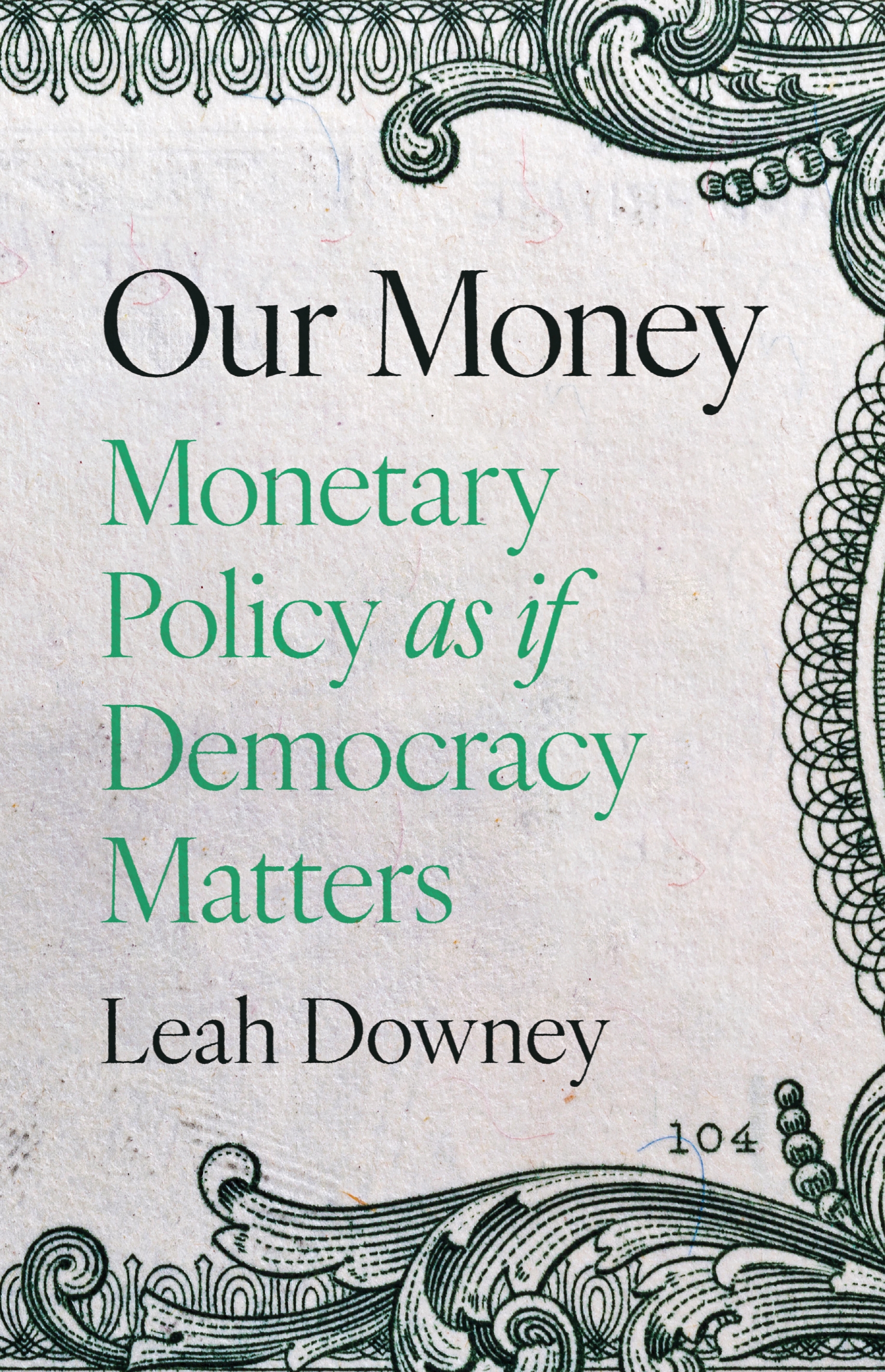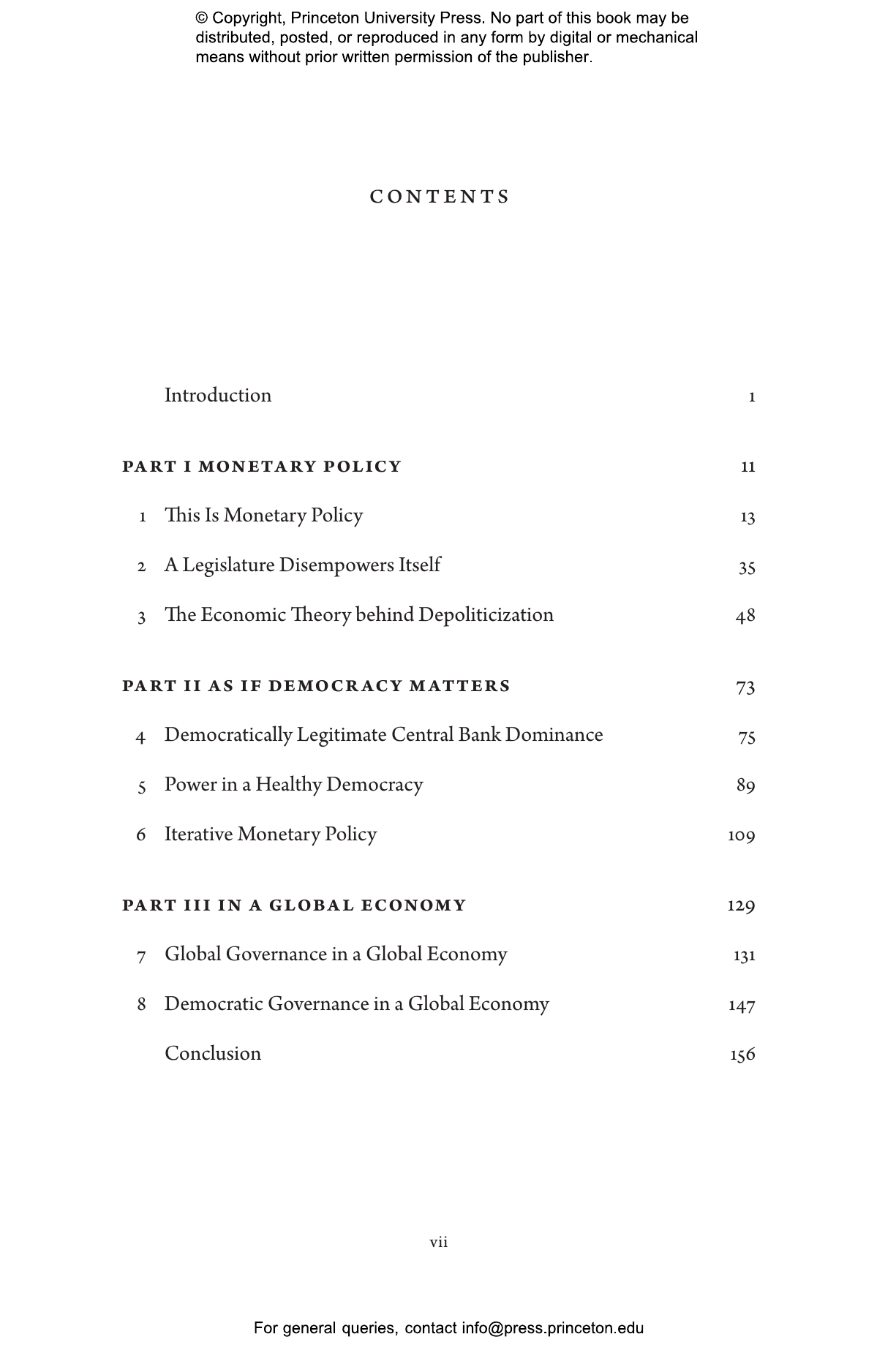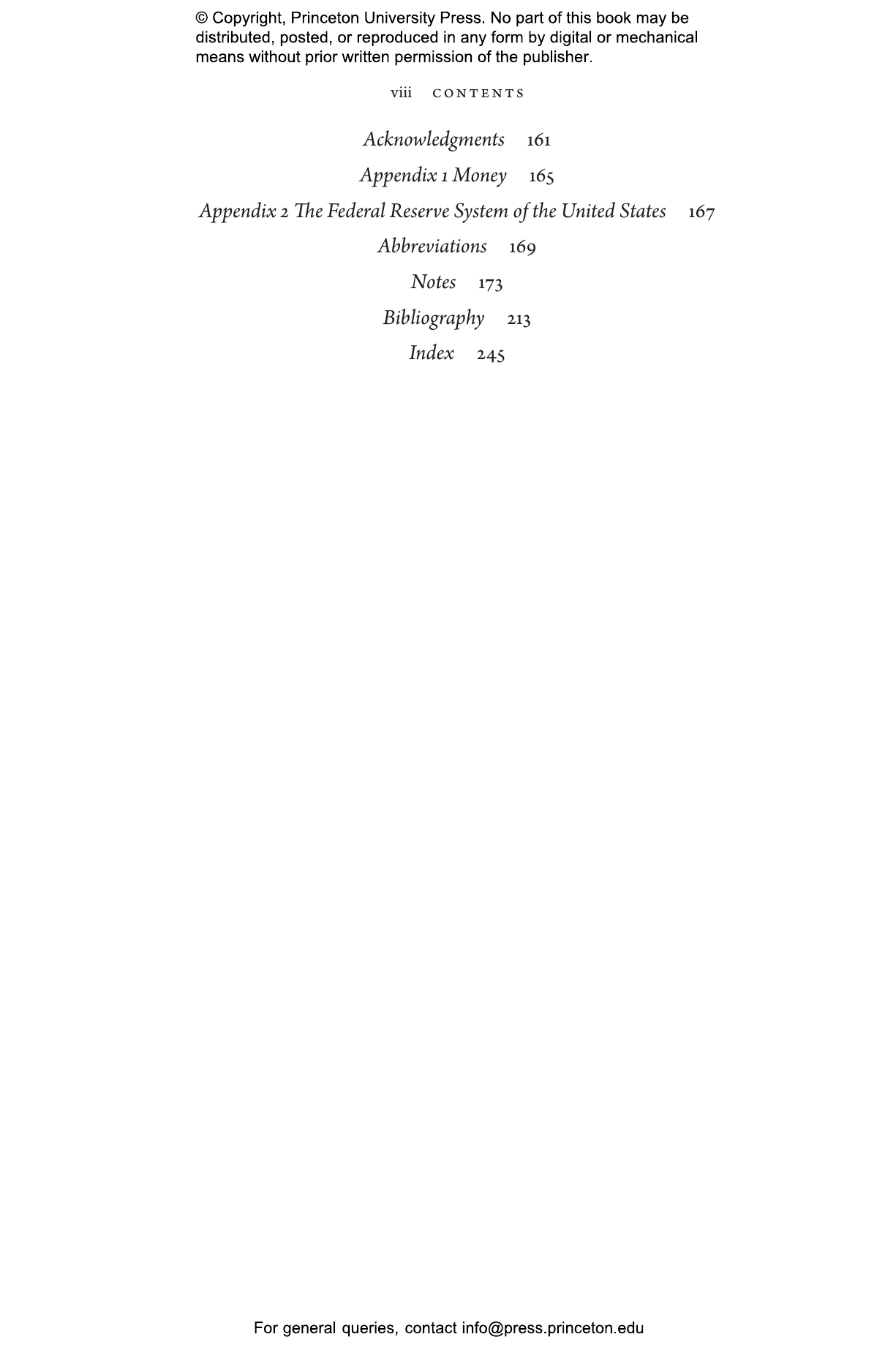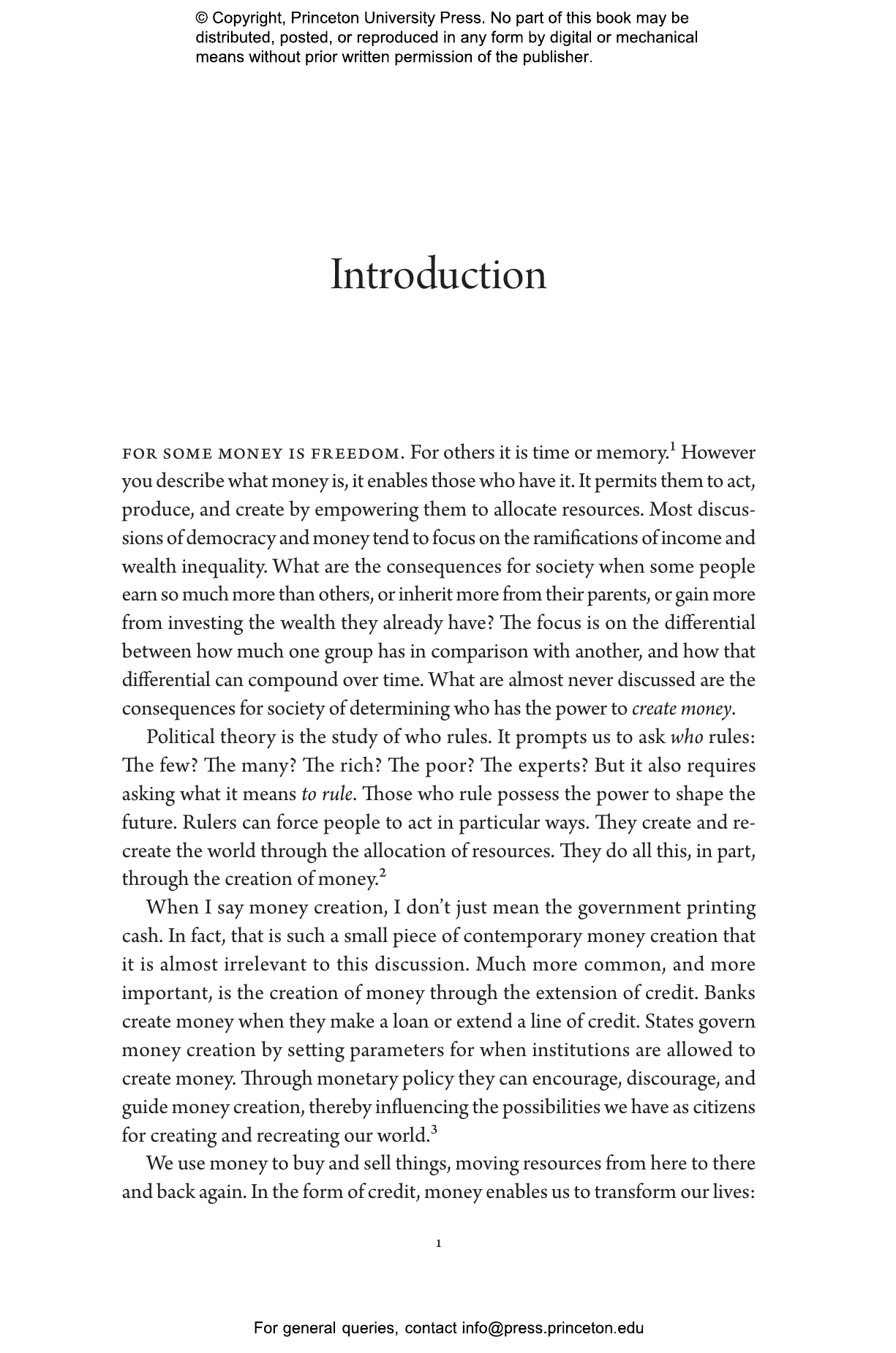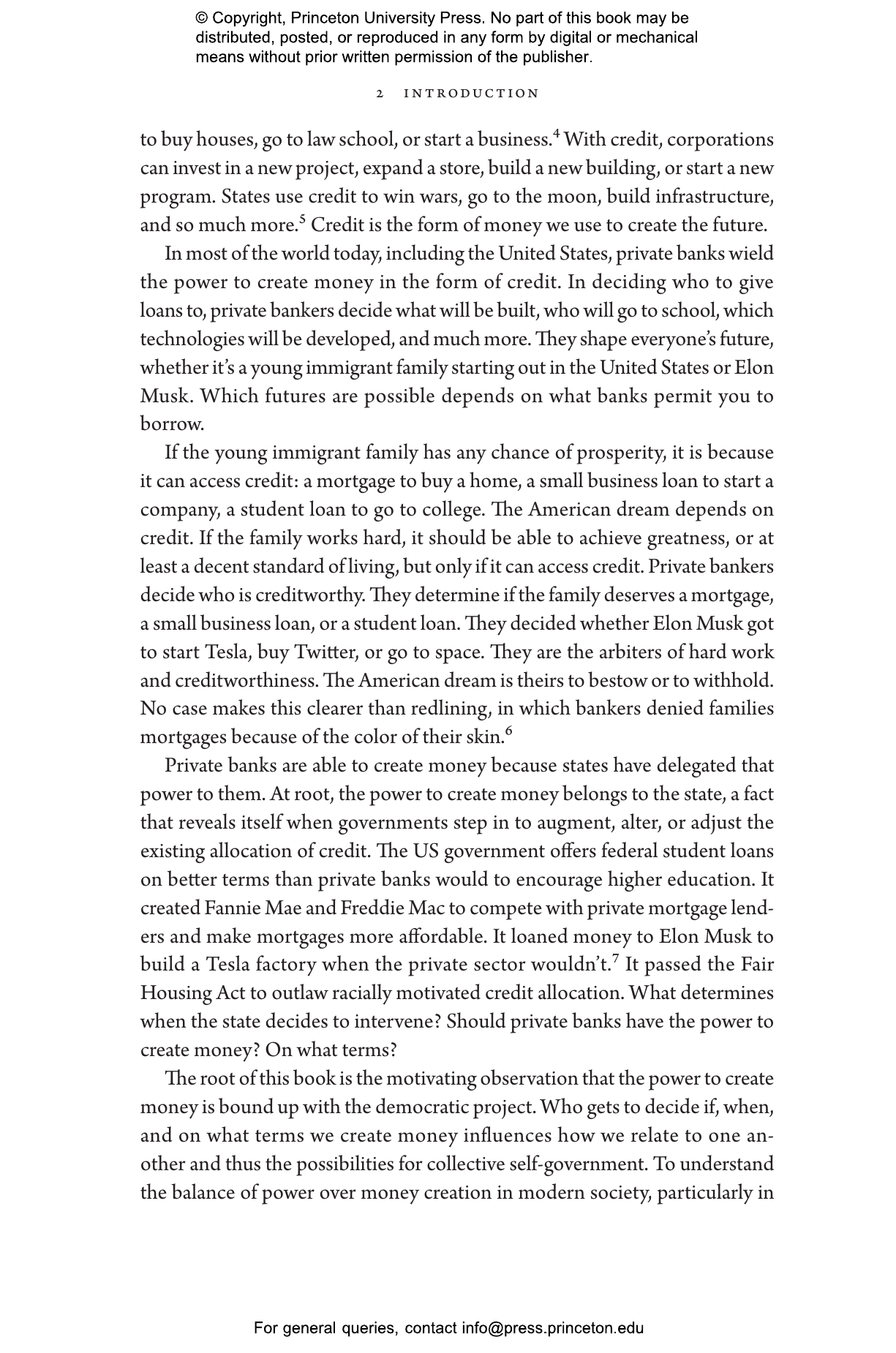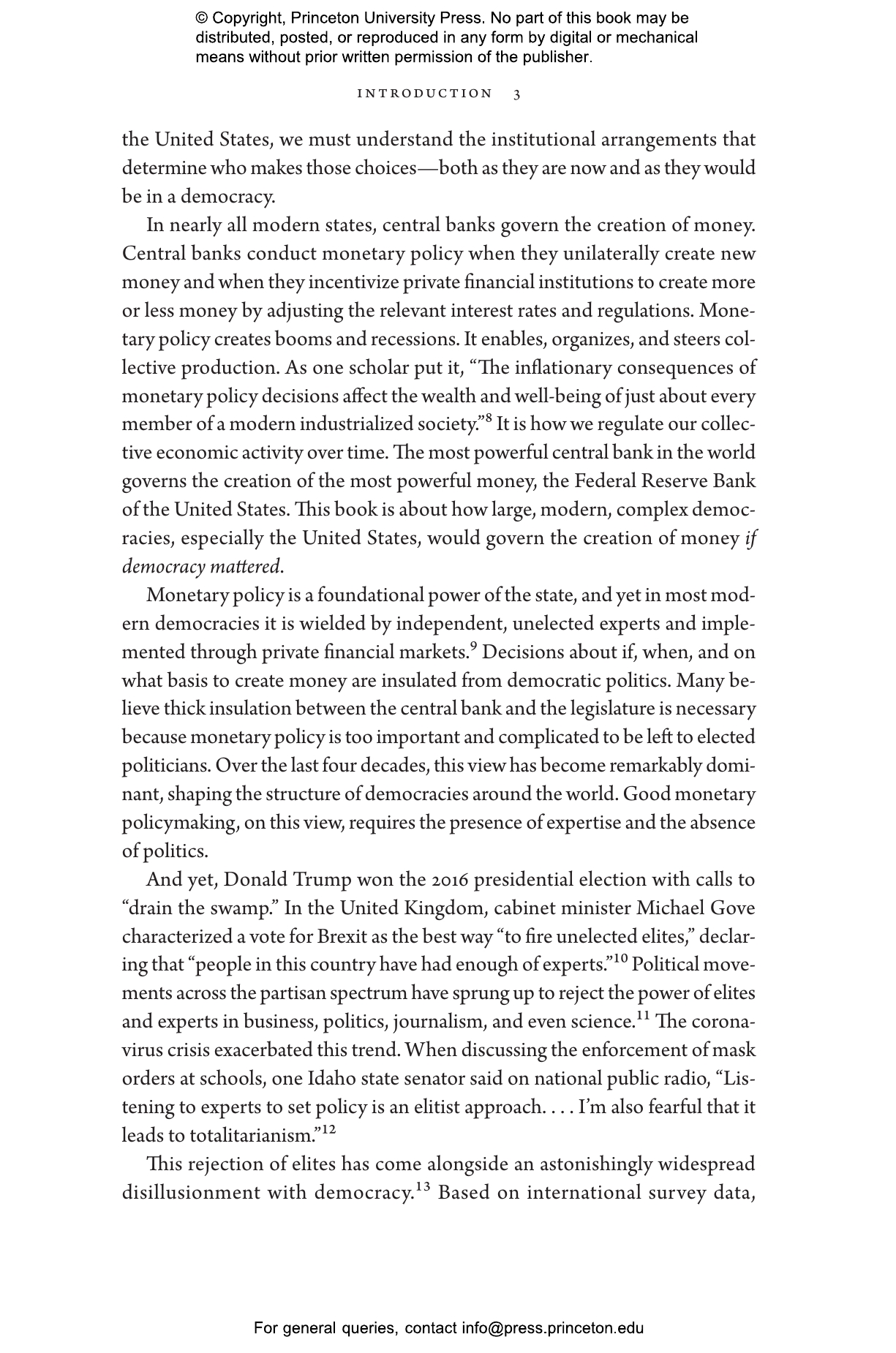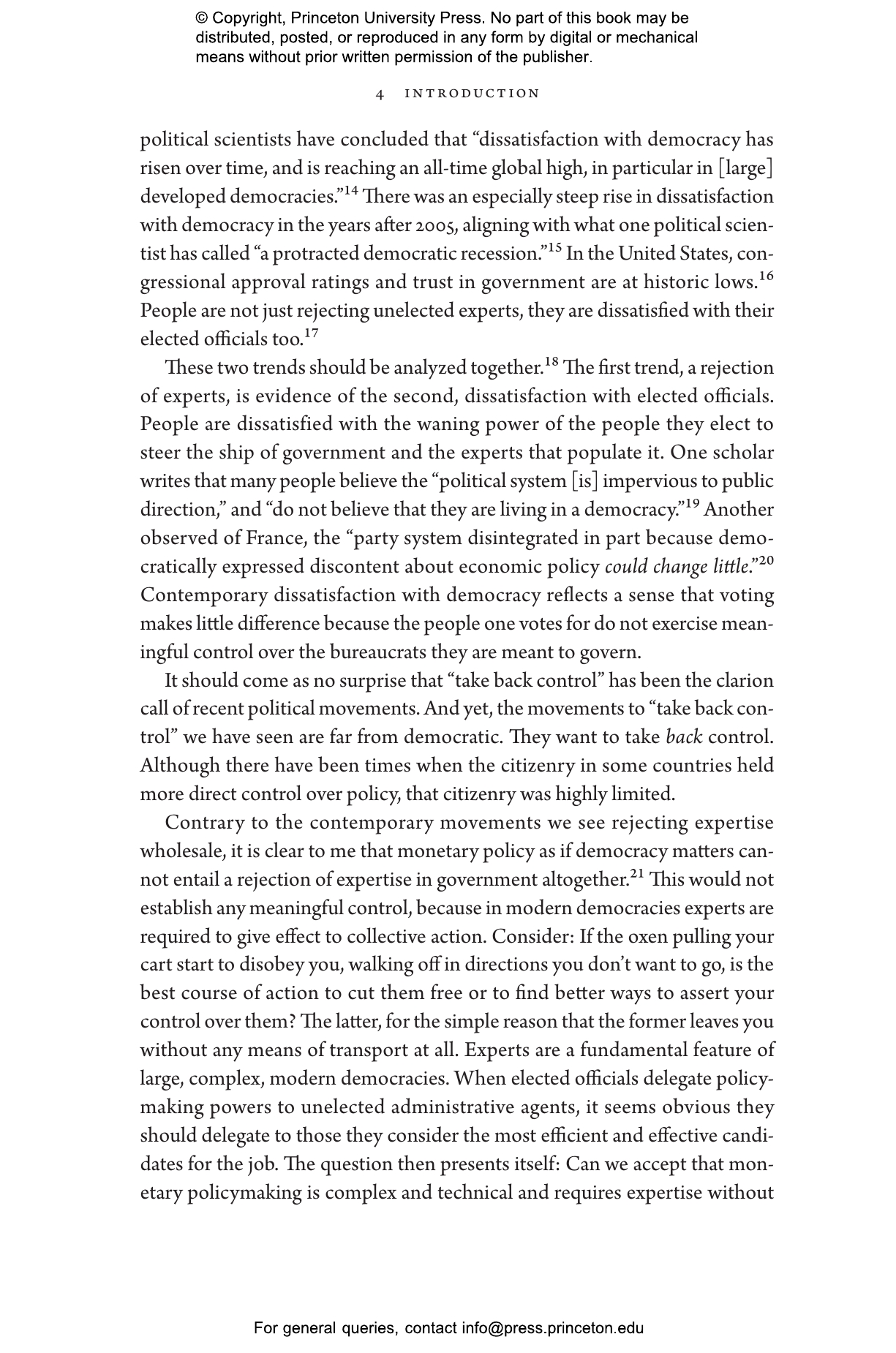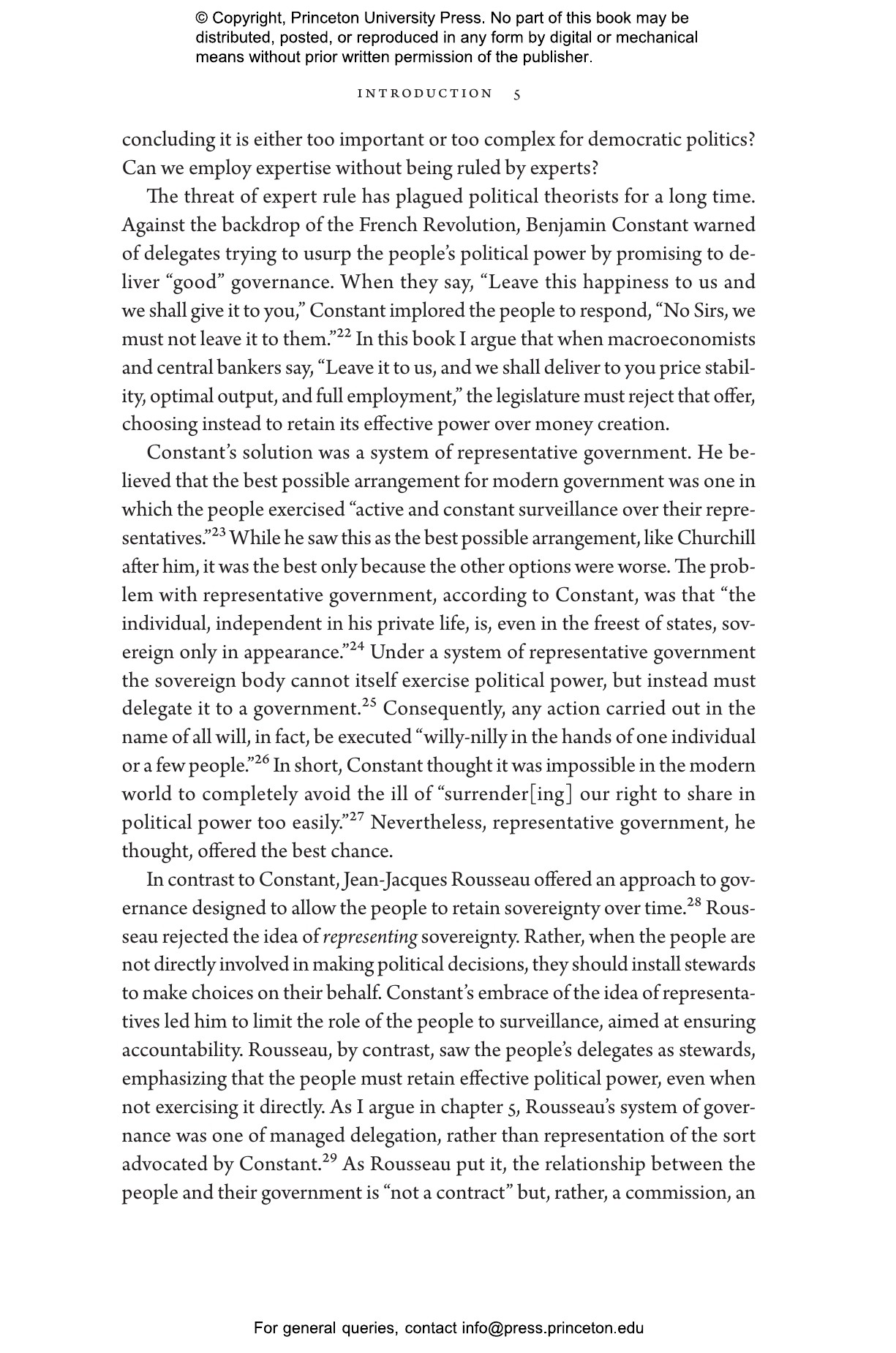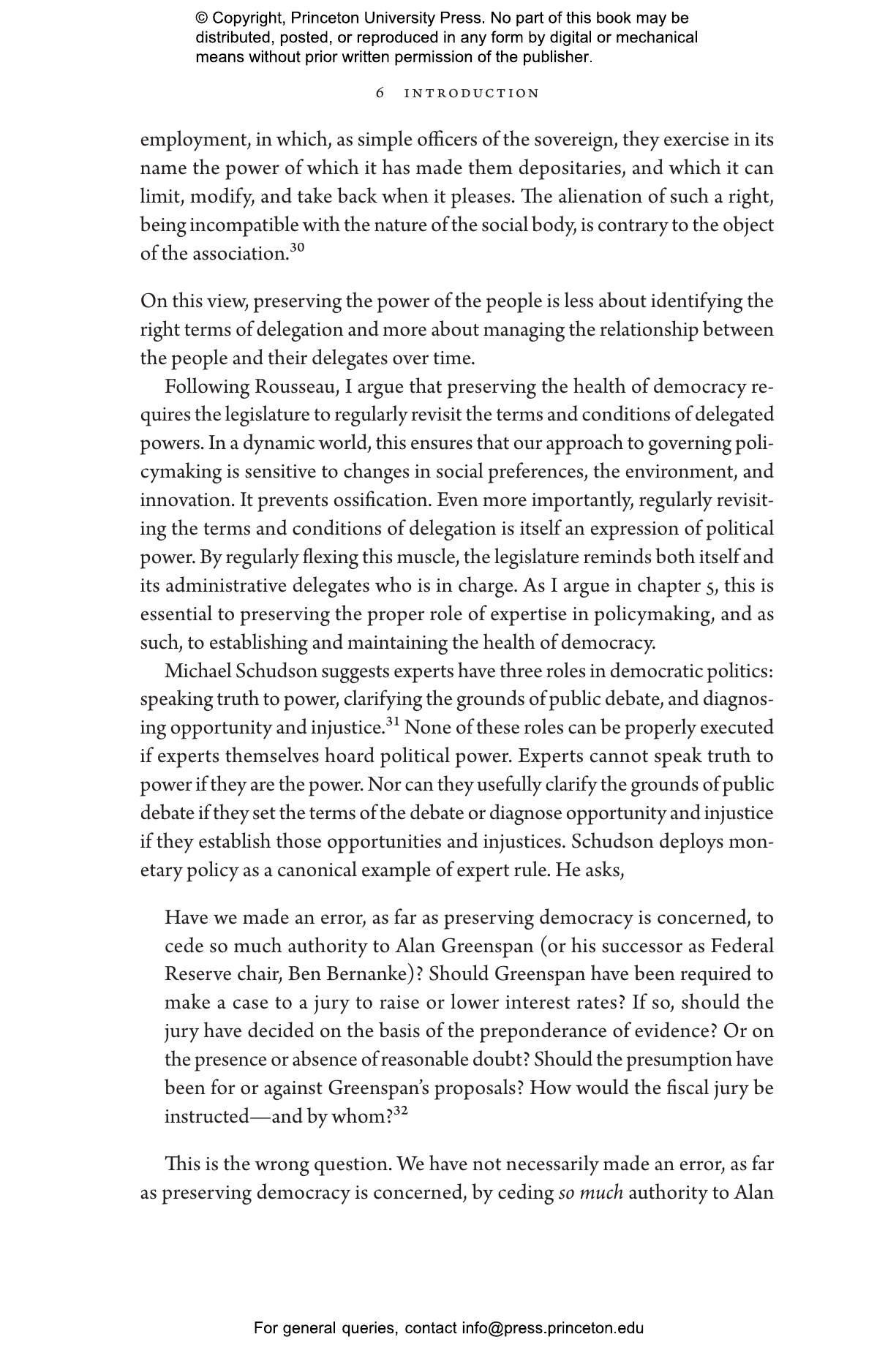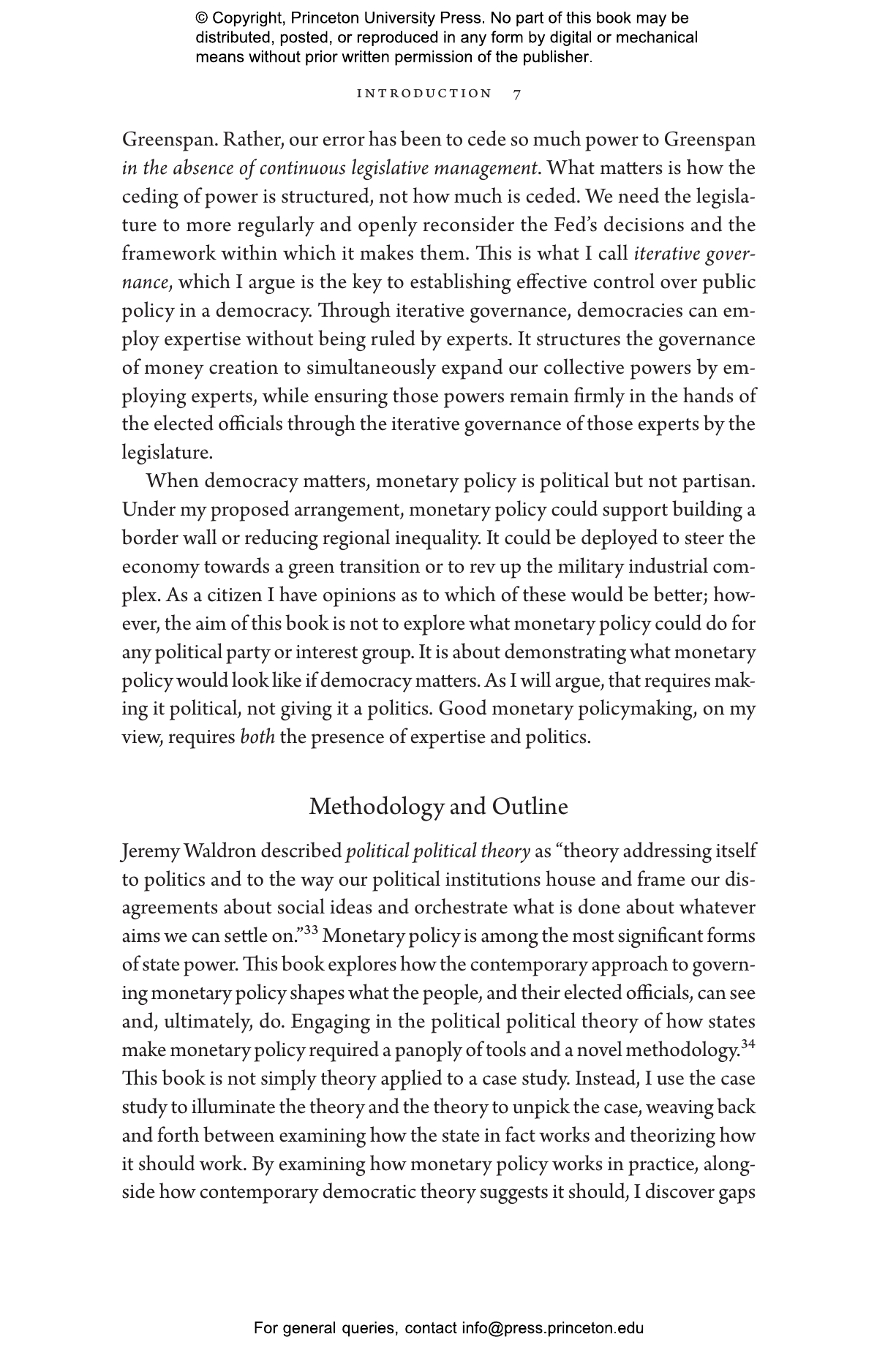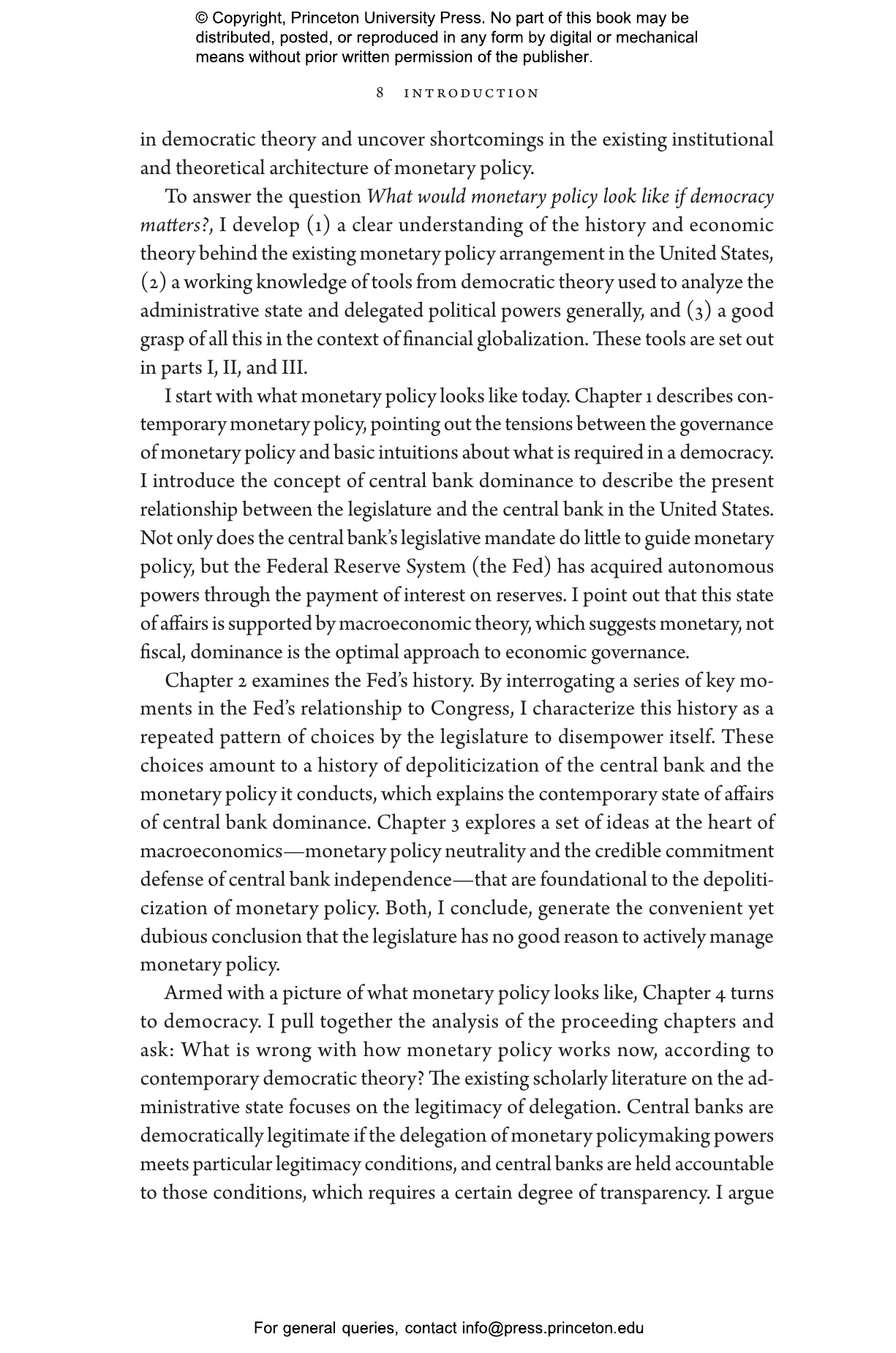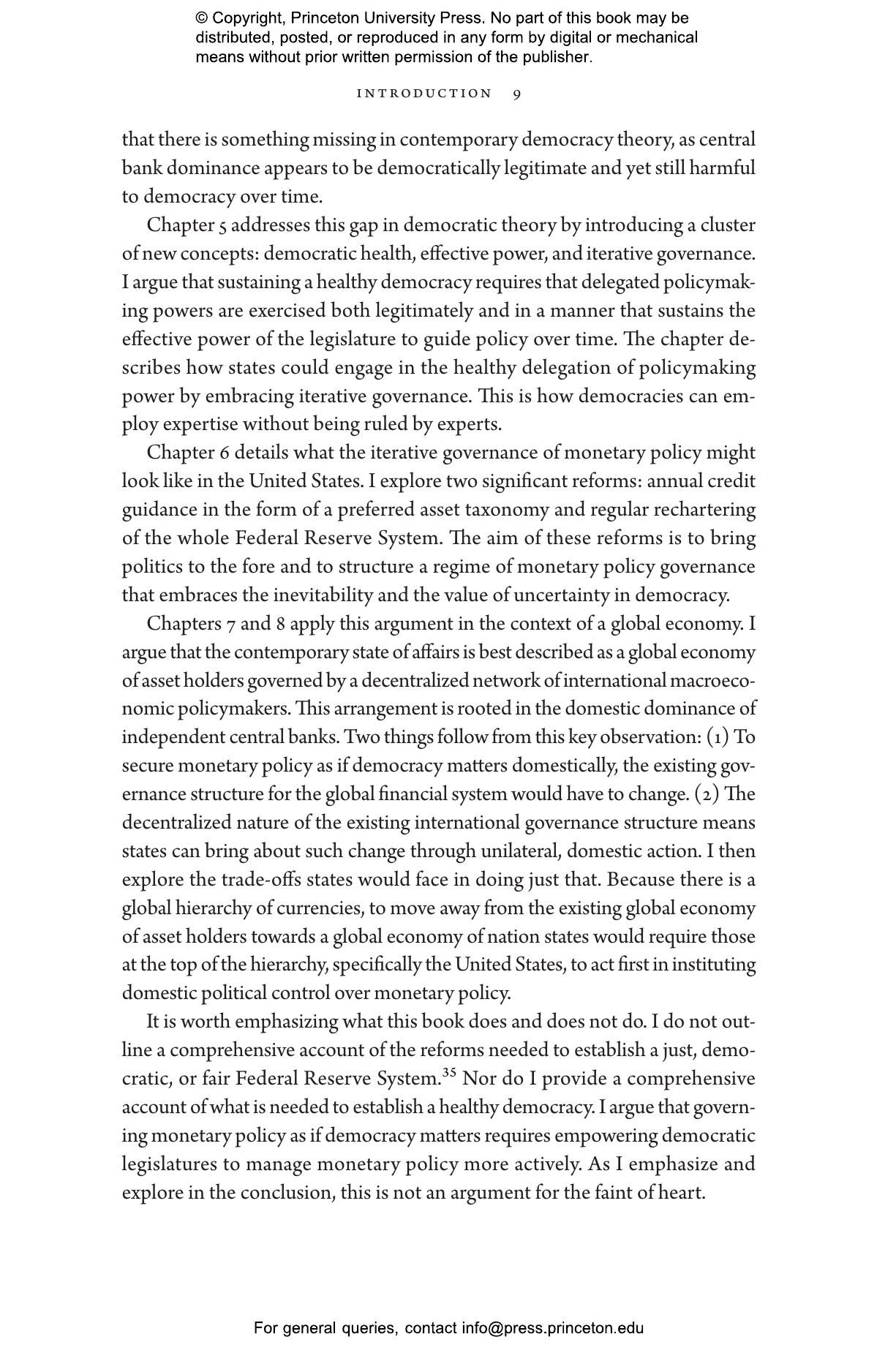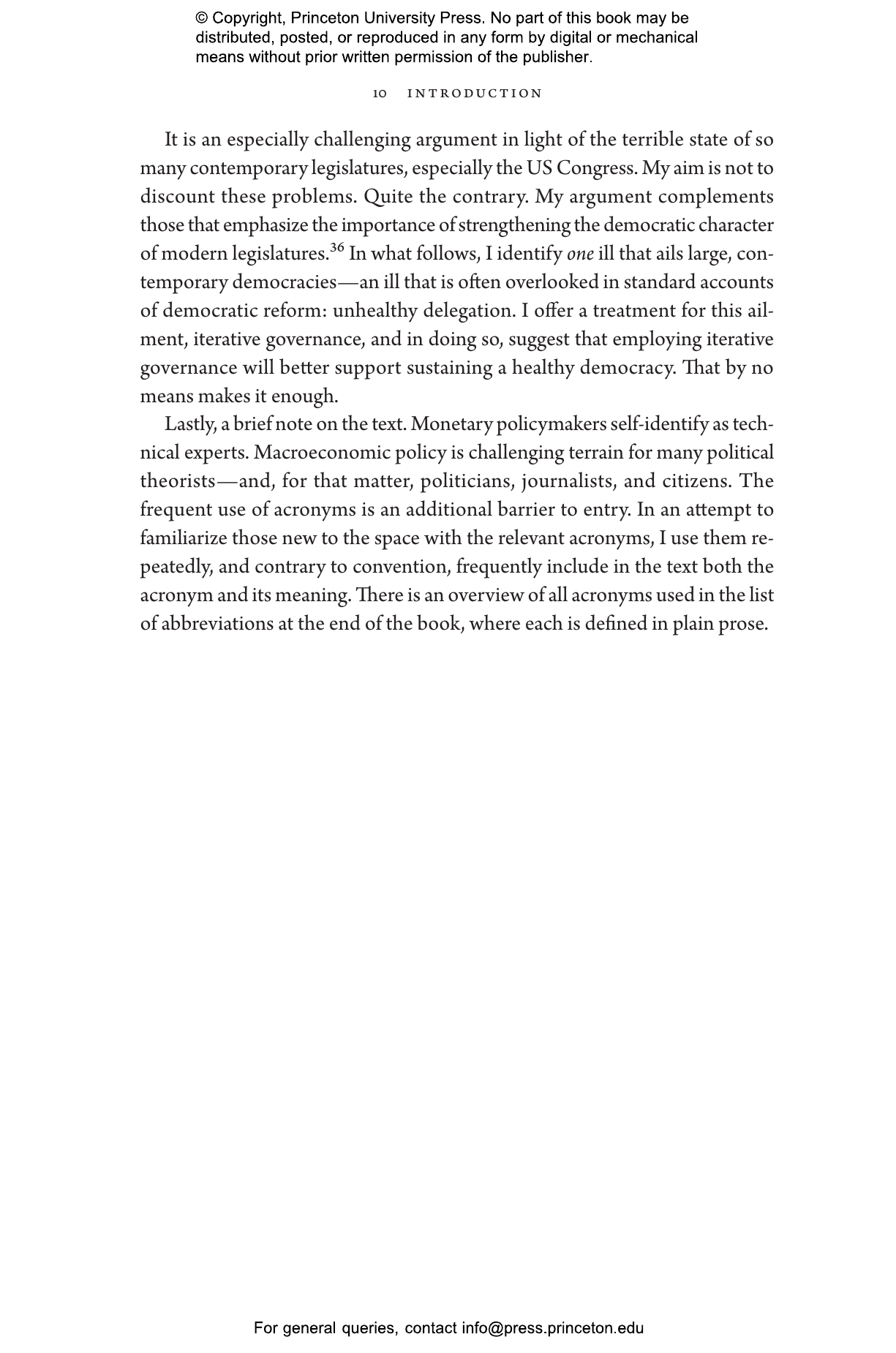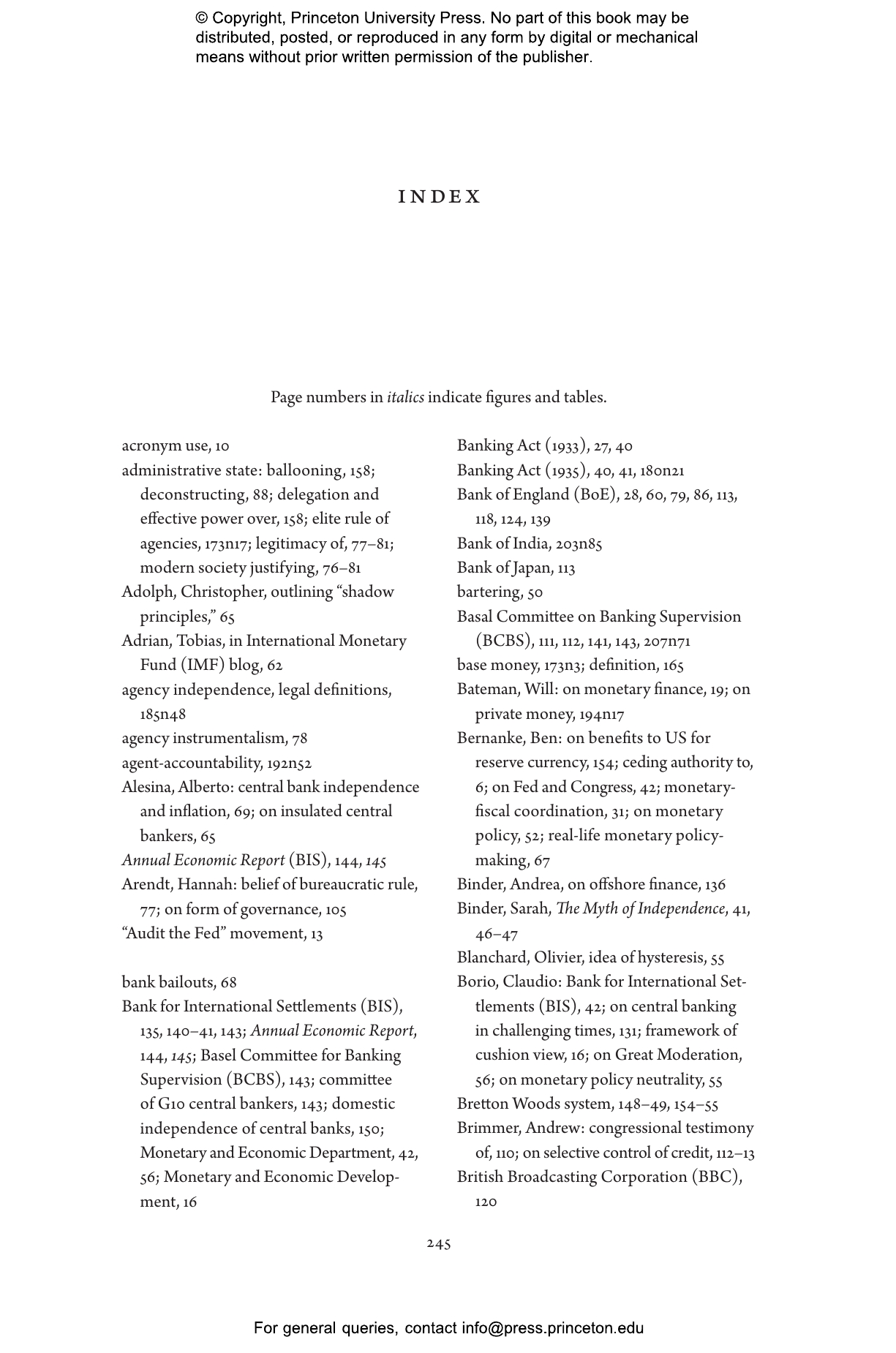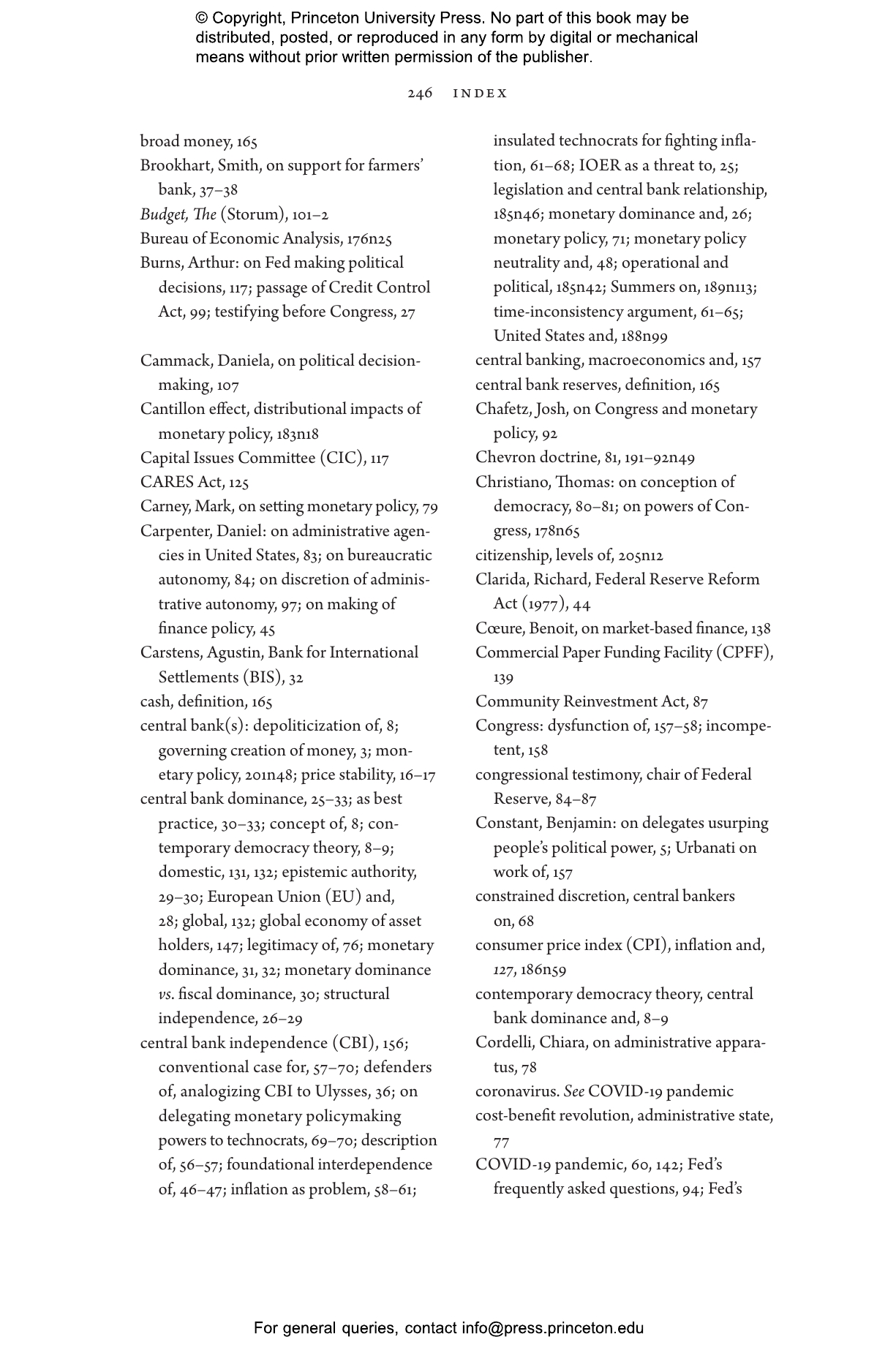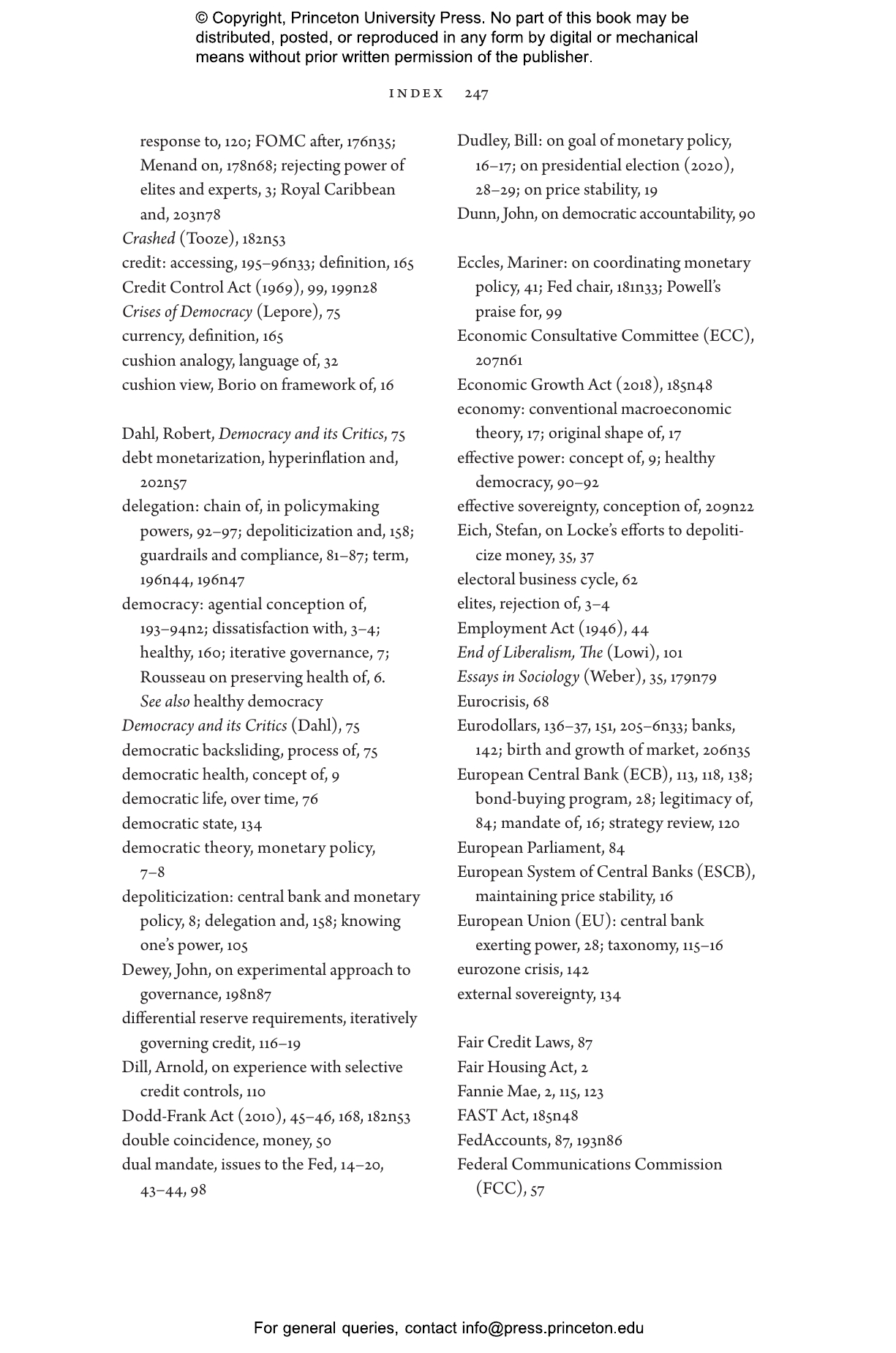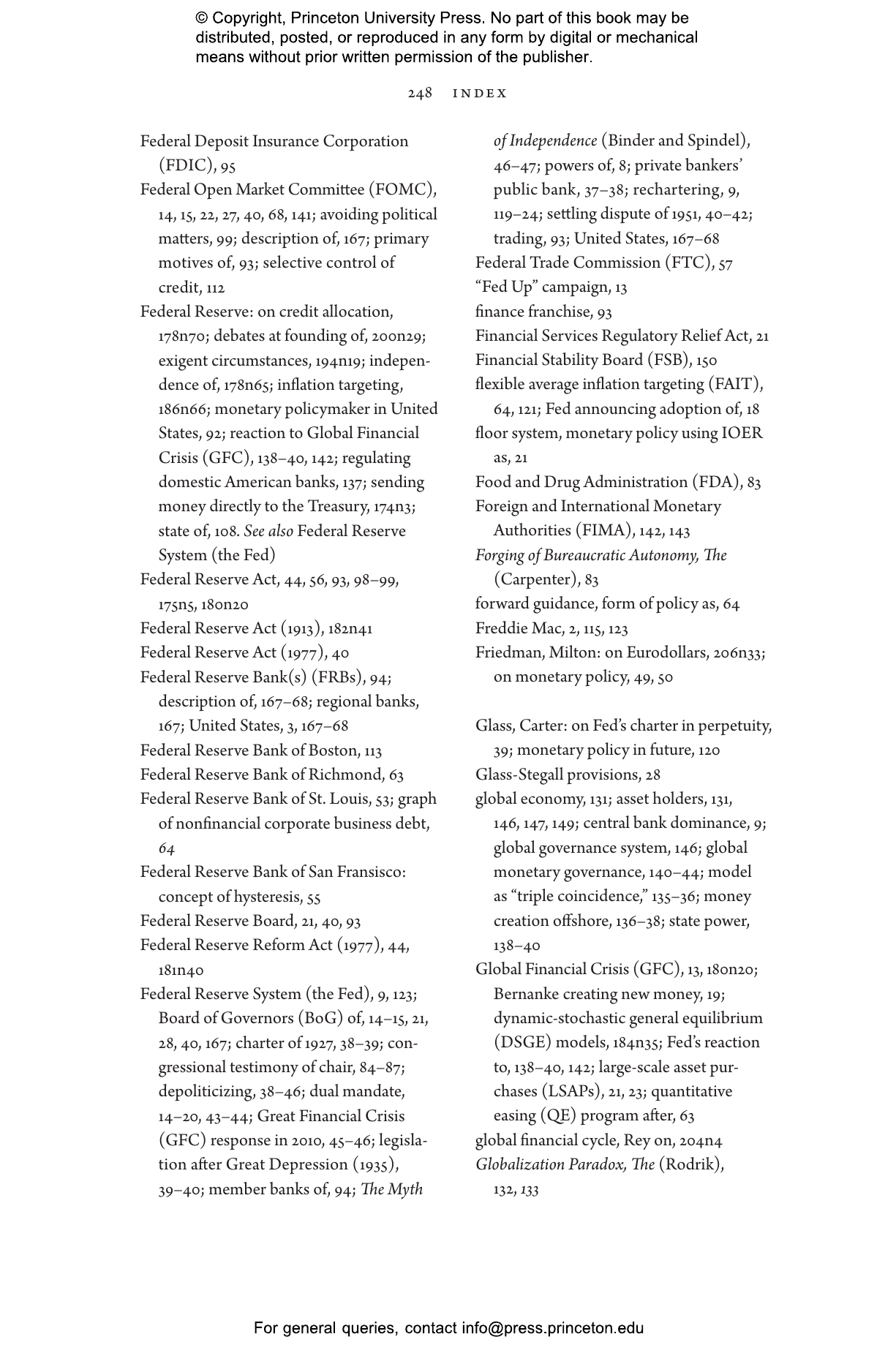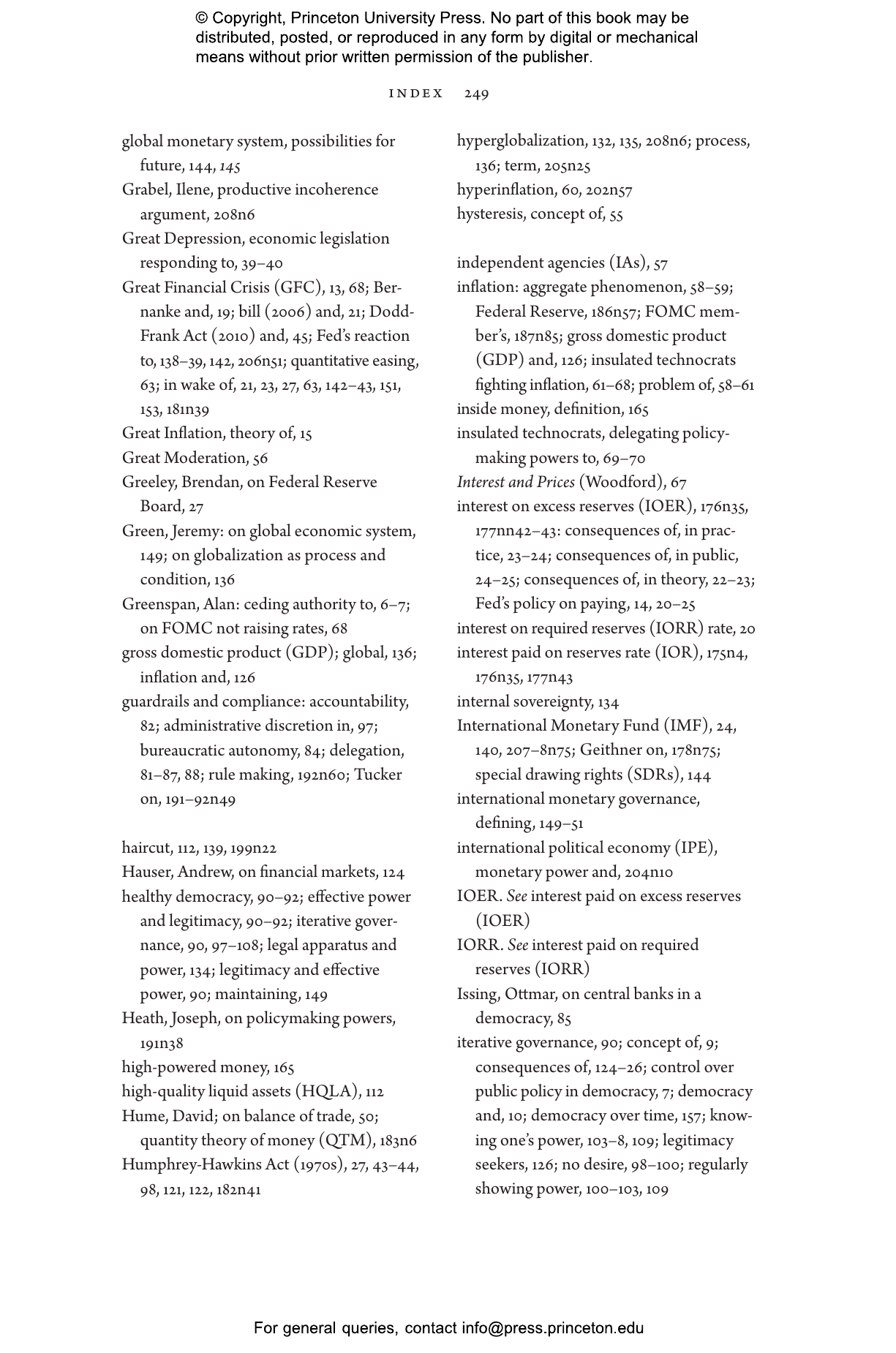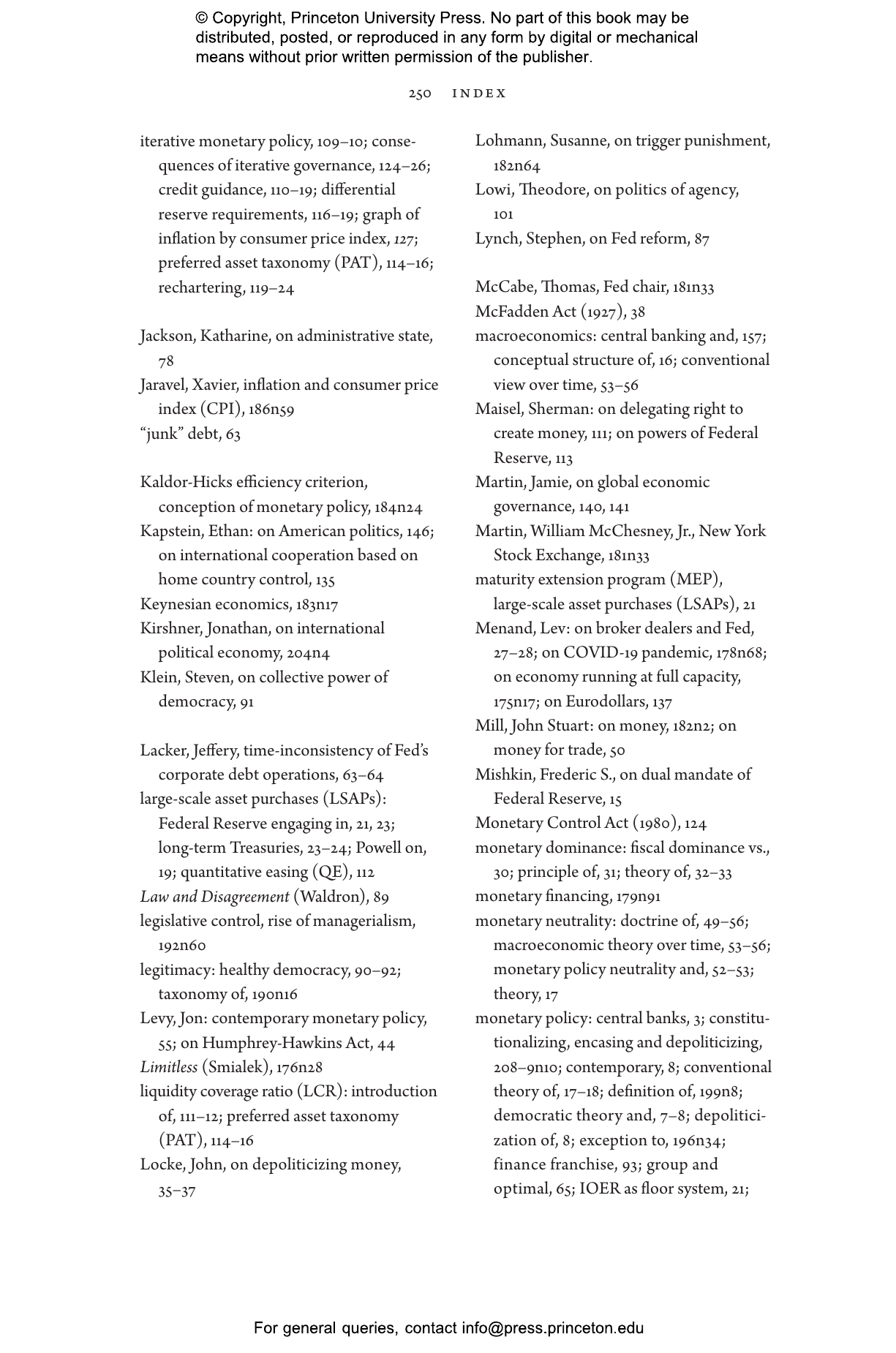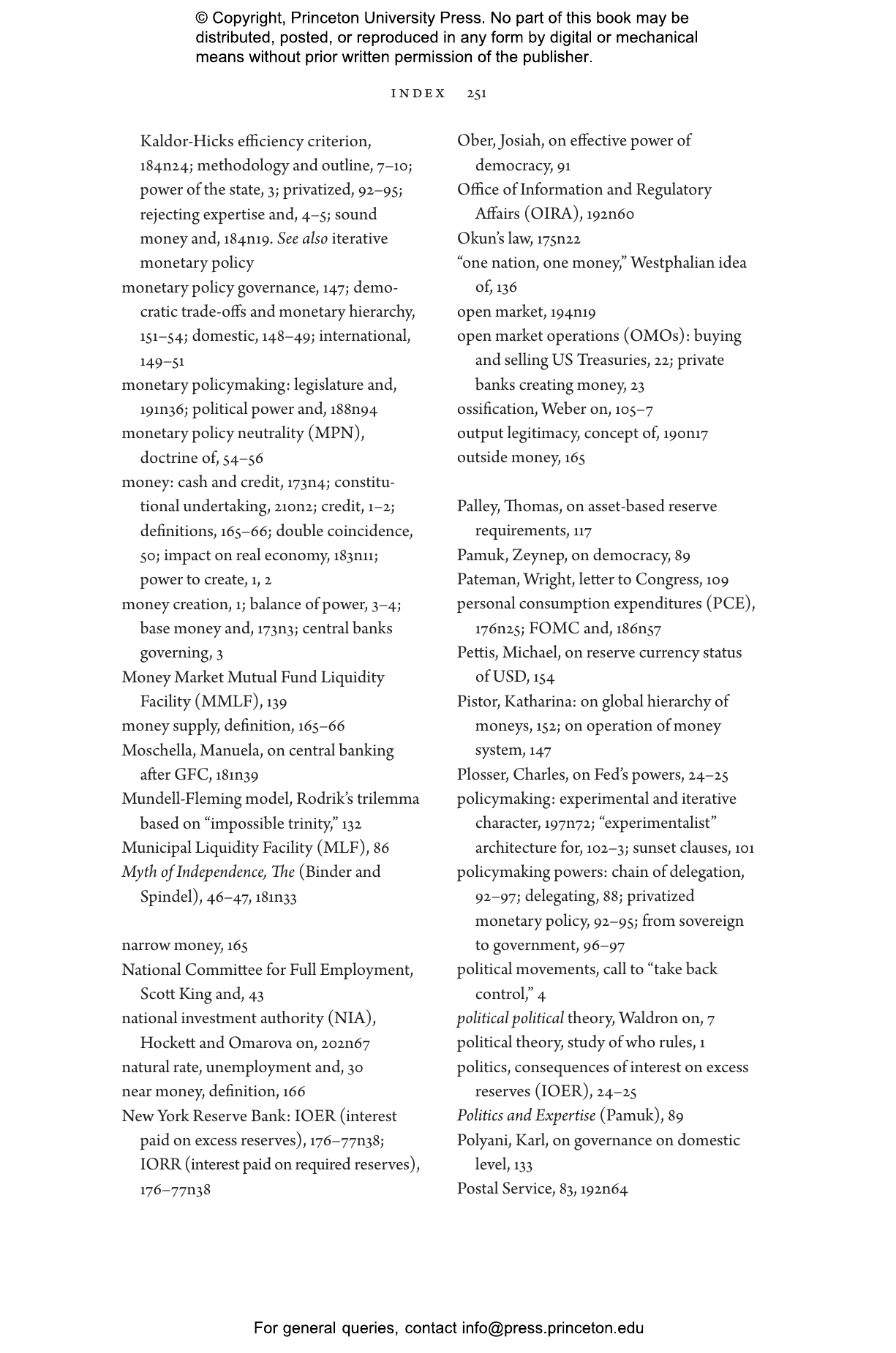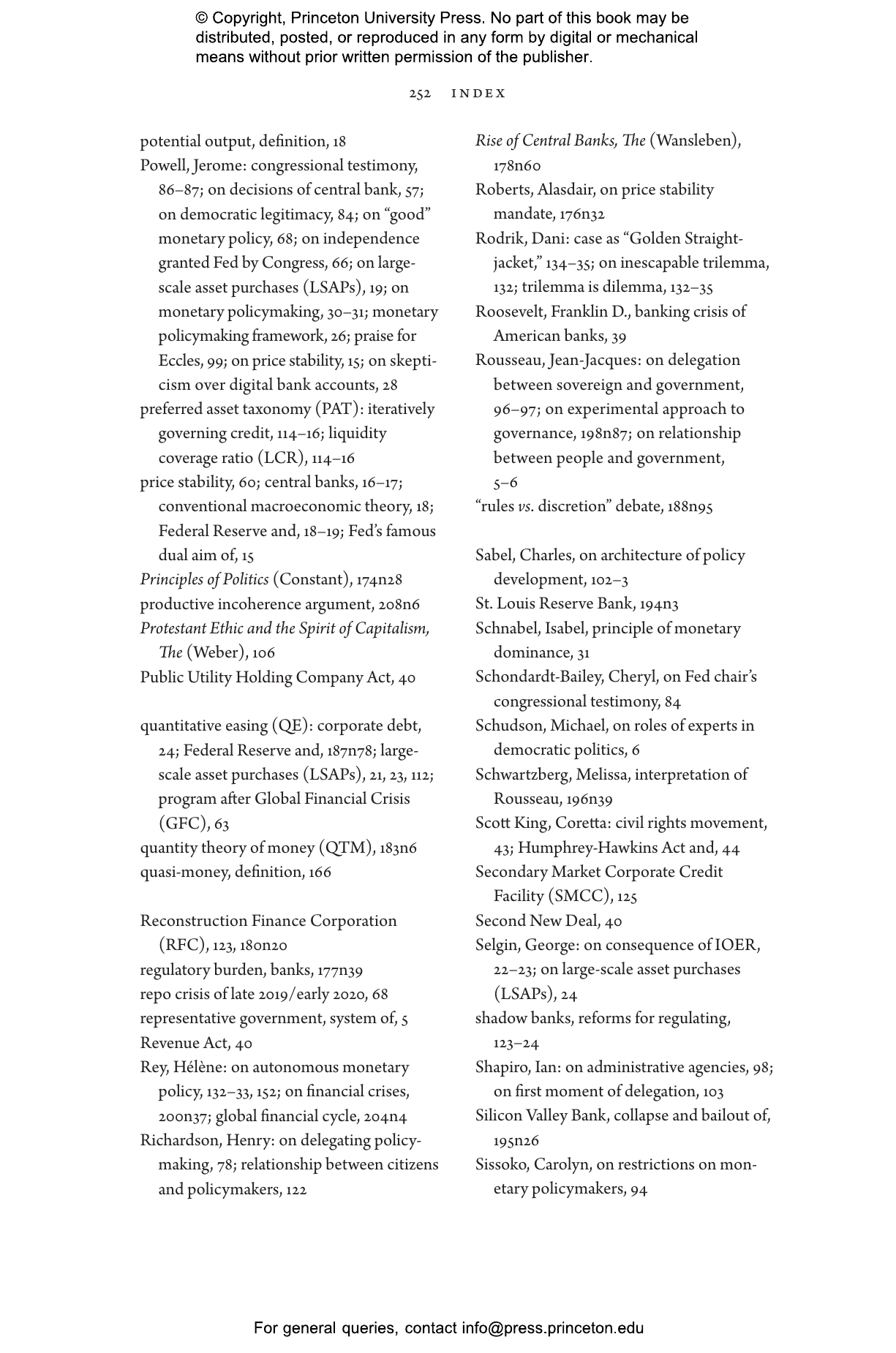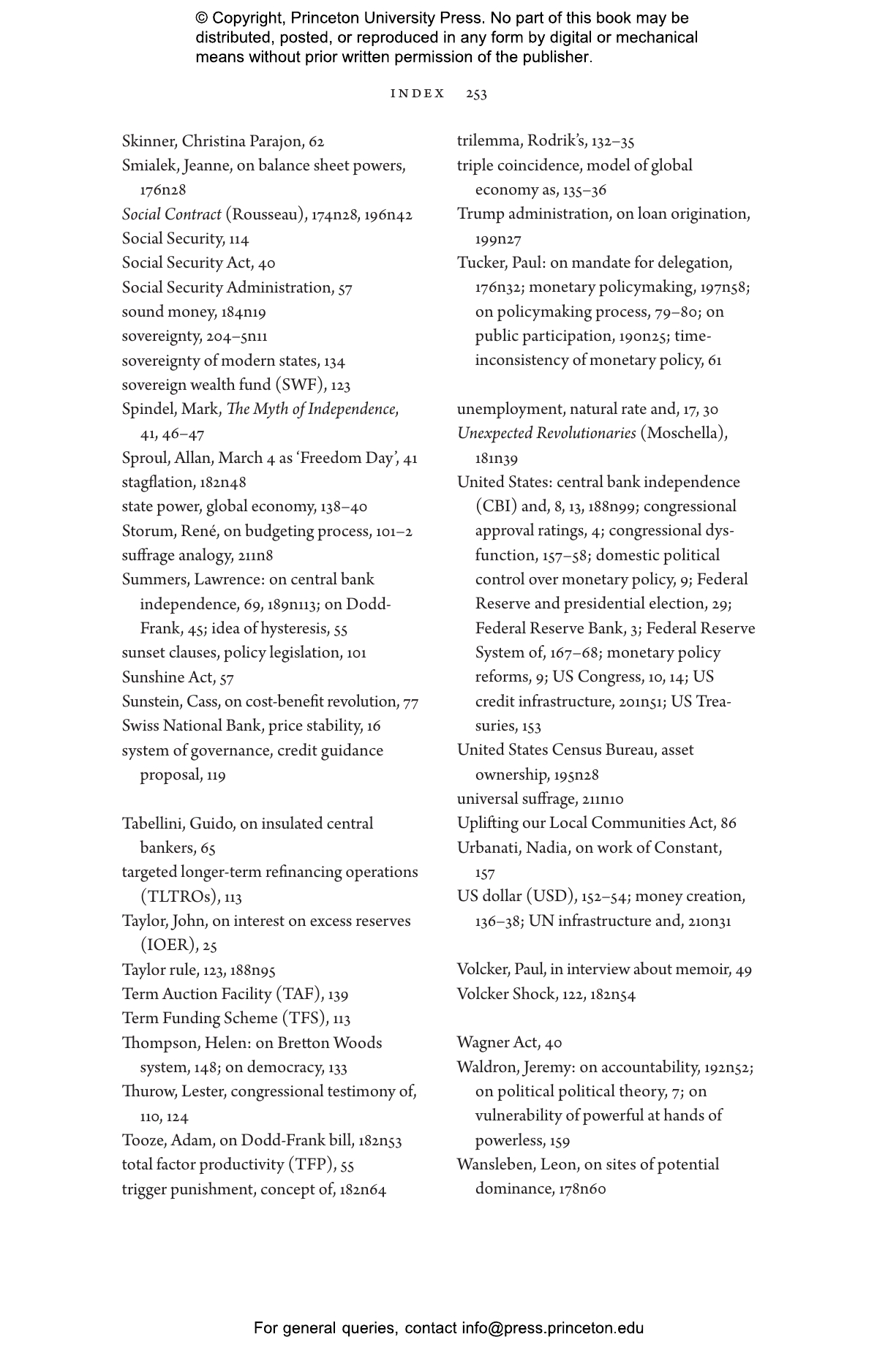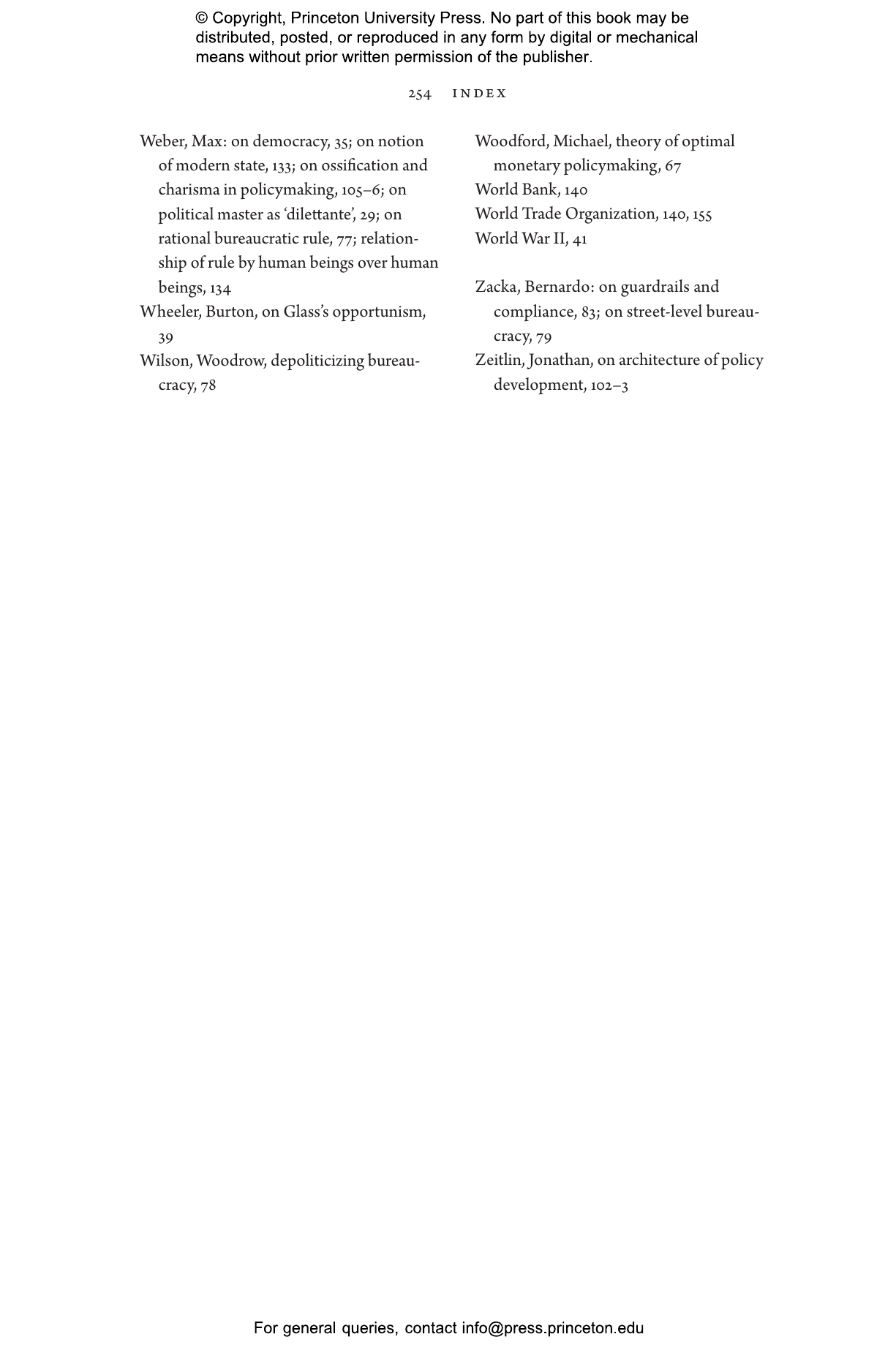The power to create money is foundational to the state. In the United States, that power has been largely delegated to private banks governed by an independent central bank. Putting monetary policy in the hands of a set of insulated, nonelected experts has fueled the popular rejection of expertise as well as a widespread dissatisfaction with democratically elected officials. In Our Money, Leah Downey makes a principled case against central bank independence (CBI) by both challenging the economic theory behind it and developing a democratic rationale for sustaining the power of the legislature to determine who can create money and on what terms. How states govern money creation has an impact on the capacity of the people and their elected officials to steer policy over time. In a healthy democracy, Downey argues, the balance of power over money creation matters.
Downey applies and develops democratic theory through an exploration of monetary policy. In so doing, she develops a novel theory of independent agencies in the context of democratic government, arguing that states can employ expertise without being ruled by experts. Downey argues that it is through iterative governance, the legislature knowing and regularly showing its power over policy, that the people can retain their democratic power to guide policy in the modern state. As for contemporary macroeconomic arguments in defense of central bank independence, Downey suggests that the purported economic benefits do not outweigh the democratic costs.
Leah Downey is junior research fellow at St. John’s College, Cambridge, and a coeditor of A Political Economy of Justice.
"[Our Money] is meticulously researched, topical in an era of deepening inequality and poses important questions for even the most ardent defenders of central bank independence."—Enda Curran, Bloomberg
"This is a great book. It’s a wonderful analysis of . . . democratic theory to monetary policy, which is a great contribution to great political theory. It shows deep knowledge of economics as well as democratic theory."—Jeffrey Church, The Political Theory Review
"¸é±ð³¦´Ç³¾³¾±ð²Ô»å±ð»å"—Choice
“An important contribution to the debate over delegation, expertise, and democracy. This book stimulated new thinking on my part and gave me new insights and some new perspectives on this important topic, one that I have been thinking about for over forty years.”—Gerald Epstein, University of Massachusetts Amherst
“A brilliant interrogation of the limits of expert rule. Downey explores the undemocratic character of central bank independence and provides a blueprint for how democratic societies can regain control over monetary policy, while retaining a role for expertise. This is an important and timely book, which deserves a wide readership.”—Chiara Cordelli, University of Chicago
“A major new contribution to democratic theory and the politics of money, Leah Downey’s brilliant book succeeds in infusing economic power and expertise with the spirit of democracy, speaking to scholars, policy makers, and curious citizens alike. Our Money offers an optimistic blueprint for how democratic legislators can employ monetary expertise to shape the creation of money for the better. The result is a broad vision of iterative governance that far transcends debates over monetary policy.”—Stefan Eich, Georgetown University and author of The Currency of Politics
This publication has been produced to meet accepted Accessibility standards and contains various accessibility features including concise image descriptions, a table of contents, a page list to navigate to pages corresponding to the print source version, and elements such as headings for structured navigation. Appearance of the text and page layout can be modified according to the capabilities of the reading system.
Accessibility Features
-
WCAG v2.2
-
WCAG level AA
-
Table of contents navigation
-
Single logical reading order
-
Short alternative textual descriptions
-
Print-equivalent page numbering
-
Landmark navigation
-
Index navigation
-
Epub Accessibility Specification 1.1
-
ARIA roles provided
-
All non-decorative content supports reading without sight
-
No known hazards or warnings


